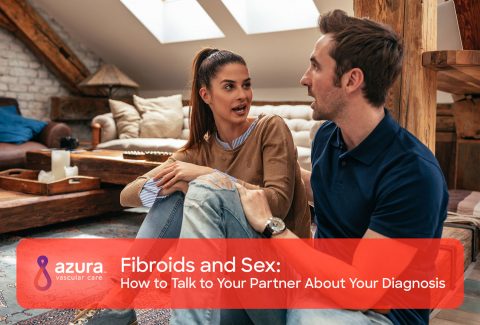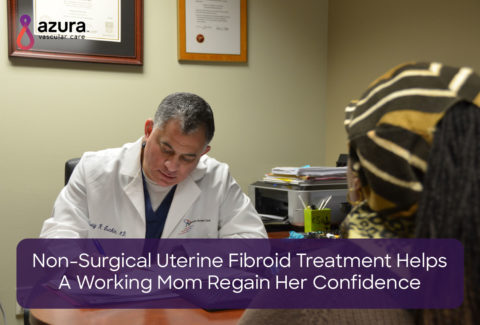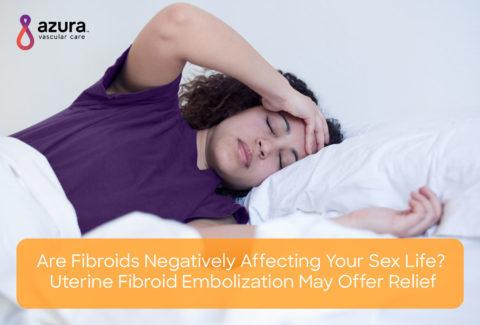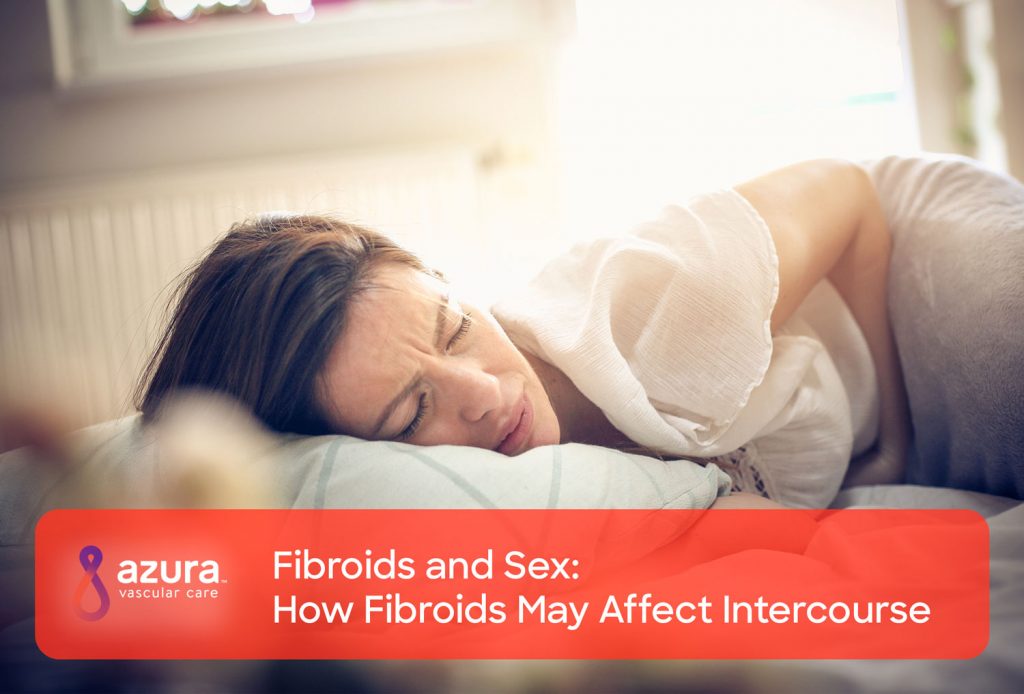
For some women, uterine fibroids and sex are a painful combination.
Up to 80 percent of women develop a uterine fibroid by age 50. (i) While most fibroids don’t cause any symptoms, for some, uterine fibroids and painful intercourse is an all too common occurrence.
In addition to pain during sex, depending on their location, size, and number, uterine fibroids can cause heavy or irregular menstrual bleeding and muscle cramping—other setbacks for your sex life.
Fibroids and Sex
Fibroids can affect your sex life if they cause:
- Pain during sex
- Pelvic pain
- Heavy or painful menstrual bleeding
A group of American researchers took a look at why some women were experiencing extreme pain during sex. They found that fibroids were significantly associated with “deep dyspareunia,” or intercourse that is painful deep in the vagina, as opposed to the entrance. (ii)
The study included 827 women ranging in age from 35 to 49. Of these women, 63 percent had fibroids, and among those with fibroids, about 22 percent reported that they had deep dyspareunia during the previous year. (ii)
Specifically, the study revealed the following about fibroids and sex: (ii)
- Women whose fibroids were located in the upper section of the uterus were more likely to have deep, painful intercourse.
- Deeply painful sex was more common in women who had given birth. In fact, for each delivery, the odds of deep dyspareunia increased by 30 percent.
- Deep dyspareunia was more common in younger, premenopausal women.
- Women with other pelvic conditions like endometriosis were nearly three times more likely to have deep dyspareunia than those without other pelvic complaints.
- Depressed women were twice as likely to have painful intercourse than those in the study who didn’t have a history of depression.
While the study didn’t conclude that fibroids caused deep dyspareunia, it did reveal a strong connection between uterine fibroids and painful intercourse.
Painful intercourse can affect a woman’s libido; she may find herself less interested in sex, knowing that it will hurt. If sex is painful for you, speak with your doctor. While the cause could be uterine fibroids, there can be many other factors involved.
Do I Need Surgery for Uterine Fibroids?
Some women with uterine fibroids do not have symptoms and may not need treatment. If you have symptomatic uterine fibroids, such as heavy menstrual bleeding, pain during sexual intercourse, urinary frequency, constipation or pelvic pain, there are several treatment options available, including surgery and minimally invasive techniques. Your doctor can help you decide which treatment is best for you.
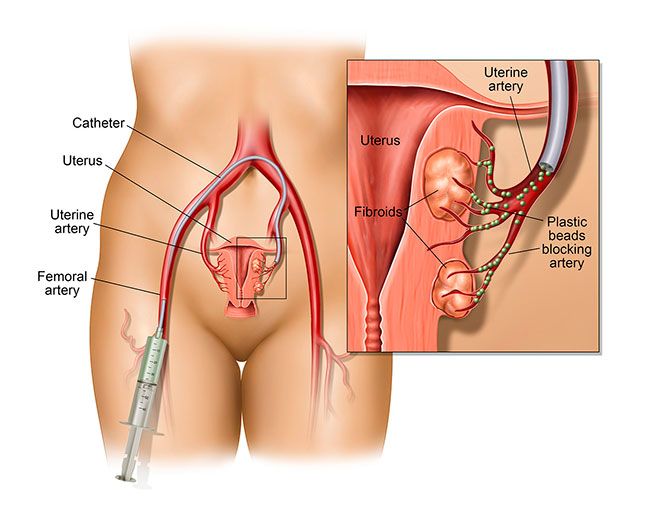
One minimally invasive technique is called uterine fibroid embolization (UFE), which is a nonsurgical approach to treating uterine fibroids. It can be performed at a cost-effective, convenient outpatient facility that is typically less stressful than a hospital environment. It does not require a large incision, and it offers less risk and a quicker recovery time compared to surgery.
To learn if you’re a candidate for UFE, download our free information sheet, Understanding Uterine Fibroid Embolization, or call 844-UFE-CARE (833-2273) to schedule an appointment with a vascular specialist.
Sources:
(i) Wong JYY, Gold EB, Johnson WO, Lee JS. Circulating Sex Hormones and Risk of Uterine Fibroids: Study of Women’s Health Across the Nation (SWAN). The Journal of Clinical Endocrinology and Metabolism. 2016;101(1):123-130. doi:10.1210/jc.2015-2935.
(ii) Moshesh, M., Olshan, A. F., Saldana, T., & Baird, D. (2014). Examining the Relationship Between Uterine Fibroids and Dyspareunia Among Premenopausal Women in the United States. The Journal of Sexual Medicine,__11(3), 800-808. doi:10.1111/jsm.12425
